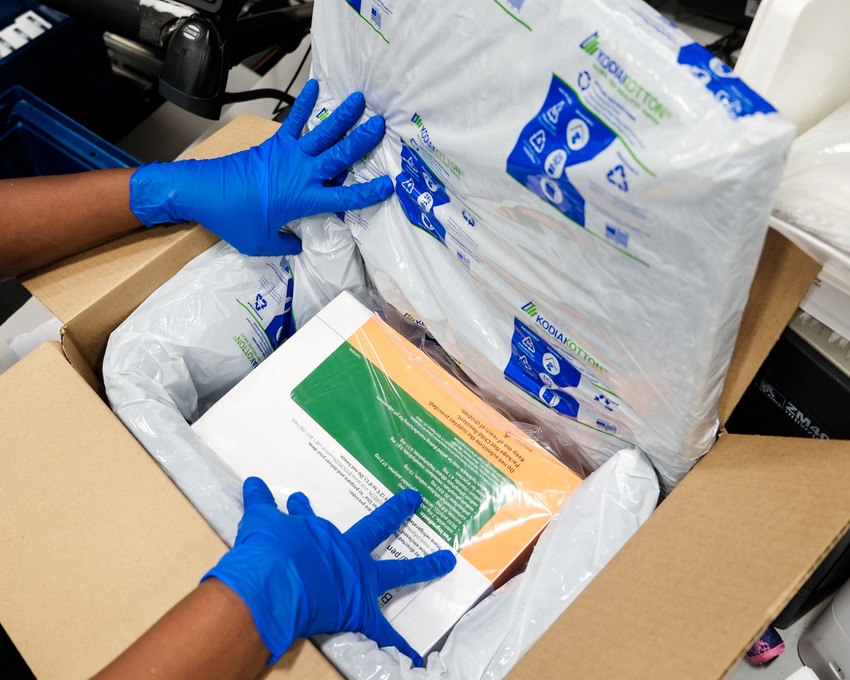Medical packaging revamp cures sustainability concerns
October 2, 2018

With a revamped shipping material design, OptumRx reportedly has become the first pharmacy care company to launch fully sustainable packaging for drug shipments. The upgraded packaging replaces polystyrene blocks with cotton-fiber pads, while providing temperature and physical protection for delicate medications in transit.
“Our priority is ensuring people get the high-quality medications they need, when they need them,” says Jon Mahrt, svp and COO, OptumRx. “Our new packaging ensures each shipment maintains the highest standard of quality and effectiveness, while reducing the environmental footprint of our medication home delivery services.”
The new packaging consists of natural cotton fiber pads, with material sourced by KodiaKooler, a company based in North Carolina. According to Mahrt, the KodiaKotton pads—certified by an independent third-party laboratory using ASTM test standards—can keep refrigerated medications between 2 and 8 degrees C during shipping; it also increases the previous 24-hour protection. Additionally, the material is biodegradable, compostable, reusable and recyclable.
Projected for use with approximately 4 million prescriptions each year, OptumRx predicts the sustainable container design will save nearly 2 million pounds of carbon dioxide, 17 million gallons of water and 4 million kW hours of energy.
Mahrt says the new packaging fits in with the company’s goal of improving patient health in various ways.
“The environment plays an important role in the health of every community,” he says. “OptumRx is always looking for ways to reduce our environmental impact in our medication home delivery services.” Mahrt added the company’s sustainability efforts include increasing water and energy efficiency, streamlining recycling and waste management programs, and encouraging employees and partners to engage in environmental stewardship.
Mahrt says home delivery of medications and medical supplies is on the rise—and that’s a good thing. As consumers clamor for more convenient, cost-effective prescription medication options, he says, home delivery of drugs and medical devices fulfills those demands, even for patients living far from the closest corner drug store.
“Adhering to a treatment regimen is critical to achieving better health outcomes,” Mahrt says. “Home delivery is a proven way to strengthen health outcomes and save money for members and clients alike. People with chronic conditions are more likely to adhere to medications that are delivered directly to their homes, and higher medication adherence rates are linked to lower healthcare costs and better healthcare outcomes.”
The company started rolling out the updated packaging material in December 2017; since then, Mahrt reports, OptumRx has shipped more than 500,000 prescriptions with the sustainable solution. The company projects all packaging OptumRx uses for pharmaceutical home delivery will be recyclable by the end of 2018.

Freelance writer and former Packaging Digest senior editor Jenni Spinner is a trade journalist with two decades of experience in the field. While she has covered numerous industries (including construction, engineering, building security, food production and public works), packaging remains her favorite.
********************************************************************************
Packaging solutions come to Minneapolis: As part of the region’s largest advanced design and manufacturing event, MinnPack 2018—and the five related shows taking place alongside it—brings 500+ suppliers, 5,000+ peers and 60+ hours of education together under one roof. Register for free today.
About the Author(s)
You May Also Like


